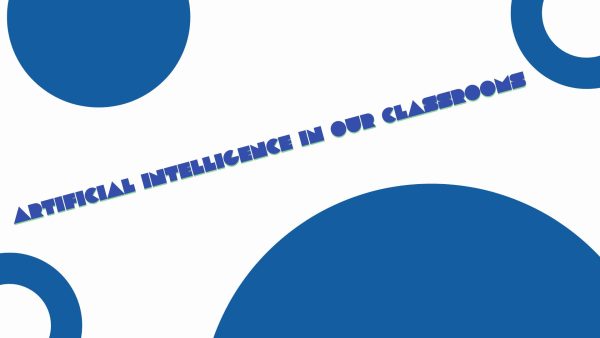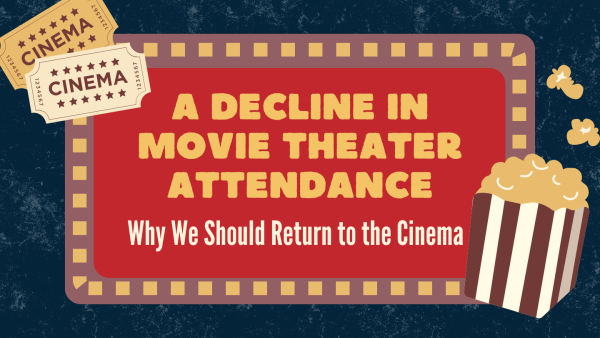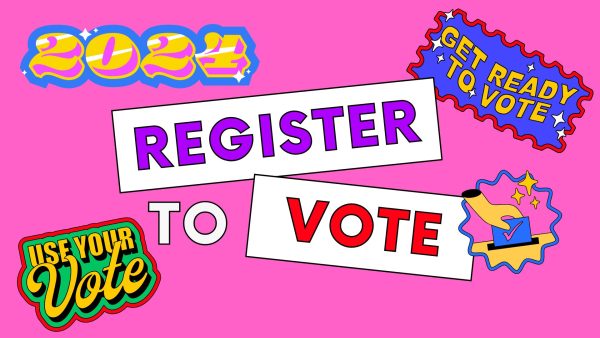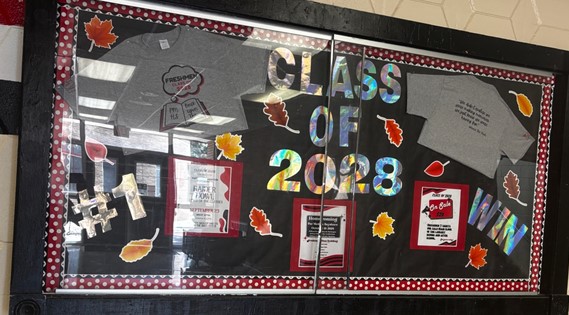An Open Letter from AP Students
“We shall defend our [AP classes], whatever the cost may be, we shall fight on the beaches, we shall fight on the landing grounds, we shall fight in the fields and in the streets, we shall fight in the hills; we shall never surrender.” – Winston Churchill
Photo by Elizabeth Niemiec
AP students want our readers to know all about the program – the good and the bad.
“I’m more intelligent than you,” said no AP student to a Regents-level student ever. Taking AP classes has never defined a person’s level of intelligence. All students are intelligent in their own way, as cliche as it is. Not every kid is good at math, and sometimes, kids aren’t good at school, period. And that’s okay. There’s no true way of measuring someone’s intelligence; intelligence is subjective anyway.
The Oxford Dictionary defines intelligence as “the ability to learn, understand and think in a logical way about things.” The Merriam-Webster Dictionary defines intelligence as “the ability to learn or understand or to deal with new or trying situations.” In neither dictionary is intelligence defined as a person’s GPA, number of rigorous classes, or area of study. STEM majors are no smarter than Liberal Arts majors, and vice versa. The same goes for AP students and Regents level students.
AP students are diligent and curious, as are Regents level students. The only few conclusions that can be drawn from the differences between AP and Regents level students are:
1. AP students become bored in a Regents level course.
2. AP and Regents courses define an academic ability of a child, not the intelligence.
It’s important to bring all students up to a level where they can be successful. If lower level students are struggling with a math class, the school district implements programs that increase the students’ chances for success. If a non-native English student struggles in school, the school district places that child in an ENL class to strengthen their language skills. It’s important to encourage students that they aren’t any less intelligent than their peers if they’d rather attend a vocational school or community college or go into the workforce after high school. We need welders, cosmetologists, servicemen, and managers in our communities.
Patchogue-Medford offers multiple programs for students who are struggling in school. For elementary students who have trouble with their speech, we provide speech services. For non-native English students who struggle with their new language, we have an abundance of ENL classes. For math students who feel like they are falling behind in a Regents level math class, we have classes like Geometry with Concepts and Algebra II with Concepts. In the middle school, we have Math Plus. In the elementary schools, we have had students in the past go to handwriting class when their handwriting skills weren’t as strong.
As important as it is for students to be supported when they are struggling, a school district should make every effort to make sure that they’re supporting all students at their school no matter the academic level of those students. If AP and honors classes didn’t exist, academically higher level students might feel bored. When a student feels bored in a class, something is wrong. That kid needs an academic challenge. Dakota Dalto, Treasurer of PACK Club, senior at Patchogue-Medford High School, and AP student, expressed her beliefs regarding academic challenges. “If I’m not being challenged at school, I’m not learning anything,” she said, “What’s the point of even going to school if you’re not going to be held to the highest standard of your intellect?”
Many school districts on Long Island have a ‘Gifted’ kids program. Bayport-Blue Point School District has a ‘Gifted and Talented’ program for their students in fifth and fourth grade. In 2011, the Sachem Central School District agreed not to cut their Gifted and Talented Education (GATE) program. In the Islip School District, the district has an Excel program implemented for kids who need challenging and rigorous course loads. The Commack School District also has a Challenge & Discovery program that nurtures a student’s self-confidence, self esteem, and need for accelerated education. These school districts understand why these programs are beneficial to students. The programs enhance the learning abilities of their students.
Enhance the learning abilities of their students. This is the goal that every school district should have, and most do. However, to reiterate, school districts should ensure that every student’s learning abilities are elevated to the highest level possible, regardless of the academic ability of that student.
When it comes to the College Board, things can get pretty pricey. AP exams are $94 (AP Research and AP Seminar are both $124) and SAT exams are $46-60 for a student who doesn’t receive reduced fees. While paying for one AP exam may not be an issue, the price can come close to $600 if a student is taking 6 exams. Even if a student receives reduced fees, that total can come close to $300. It is obvious that this isn’t accessible to most public school students and can become an impediment to a child’s potential academic course load.
When it comes to sending scores to universities, the College Board also charges a fee. Considering that one requests their scores to be digitally sent, there is truly no reason for the College Board to charge up to sixteen dollars in order to electronically send a score to a college. Sending AP and SAT scores should be free, bottom line.
In some states, public schools cover the cost of their students’ AP exams. Both Florida and Colorado schools don’t require their students to pay for AP exams. This helps bring access to AP classes and exams to academically high-level students who are hindered by their family’s income. If school districts want to complain about the cost of AP exams obstructing access to students who can’t afford them, school districts should look into providing these exams for free. With subsidies and state grants, this can become possible. It already has in a number of states and public schools.
Additionally, it may feel like the college board doesn’t allot enough time for AP classes to be taught. Though, if you compare this to a college course, it seems that this isn’t true. College courses are usually fifty minutes to an hour and fifteen minutes long in duration and are either two or three days a week. College semesters are about 15 weeks in length. If you do the basic math, college students only get about 2,343.75 minutes of instruction (62.5 average minutes a day * 2.5 average days * 15 weeks = 2,343.75 minutes). If you compare that to the time that AP students have, it seems to be a lot less time. AP students are taught, on average, 40 minutes a day, 5 days a week, and about 150 days of the year considering the AP exams are in the beginning of May, but not including AP Summer Assignments and extra help periods). If you do the basic math, AP high school students get 30,000 minutes of instruction (40 minutes a day * 5 days a week * about 150 days in a school year = 30,000 minutes).
However, it is true that some teachers feel like they don’t have enough time in a period to get a lesson done. “[M]y AP teachers have done a phenomenal job with the circumstances the College Board places them in,” Brooke Shellman, Board of Education student member and representative, cellist, Secretary of National Honor Society, and AP student, said, “My teachers have still been able to make learning fun for us students. For example, my AP science teachers still include labs in our learning, even though it’s not mandatory. Also, I have teachers who have created games to make learning fun and interactive.” It is true that when teachers lose days of instruction due to the weather or holidays, they assign homework to make up for the time lost. But in college, students are given many assignments to do on their own time as well (and in only four months).
The College Board may be a money-making machine, yes, but if you put expenses aside, AP classes aren’t just memorization seminars. As cliche as it is, AP classes promote higher-level thinking among students. Mr. Steve Alfano, AP student veteran and current AP United States History teacher, added, “AP educators and students work very hard to teach and learn immensely important critical thinking, analysis, and synthesis skills that will serve young men and women well in college and adulthood.” These thinking skills will not just benefit students in their AP courses; they benefit individuals later in life, and in effect, benefit all members of communities. These AP students are the same men and women who will become your doctors, infantry members, presidents, lawyers, contractors, teachers, ambassadors, small-business owners, community non-profit agency leaders, mechanics, cosmetologists, and researchers- just to name a few.
While AP classes aren’t as hard as college courses, they can be a good indicator of what college may be like. AP classes are actually advertised as ‘college-preparatory courses.’ Most students know that this isn’t the same as a college course and that most colleges won’t grant credits for doing well on an AP exam. AP courses are a step up closer to what students should expect in college, and they serve as a foundation class. “I want to major in psychology and I genuinely love AP Psychology,” Aimee Pina, Vice President of the UNICEF Club, employee at Walgreens, AP student, and Pat-Med senior, said, “I just learned in Psych that we have crystallized intelligence; our knowledge keeps accumulating and connecting. I use my knowledge of AP Calculus in AP Physics and I use my knowledge of AP Statistics in AP Psychology.”
AP classes also give students a chance to dig deeper into classes and topics that they are passionate or curious about. Hannah Pell, Co-Editor of Yearbook, President of the UNICEF Club, senior, and AP student, said, “If I never took AP Biology, I probably never would have decided to double major in it in college.” Giving students the opportunity to take AP classes gives them the chance to discover what they enjoy. “My brain is always going a thousand miles a minute, so I really enjoy classes that challenge me academically and get me thinking,” she added.
While it’s true that having a job gives a student a sense of responsibility, so do AP classes. Considering the standard we are held to, we have to learn a great deal of self-discipline. “[AP classes] helped to teach me discipline and self awareness, and I’ve made many bonds with both teachers and classmates,” Stella Wilkins, bassist for Jazz Ensemble and Pit Orchestra, Vice President of Tri-M Honor Society, Co-Anchor of Raider TV, senior, and AP student, said, “[These] classes have opened my eyes to the importance of networking and collaborating, and making teamwork much more efficient- which is something I’ll most likely face in the work field.” AP classes give students a great opportunity to gain skills that they need for the workforce later in life.
Surprisingly, AP students also wish for a nine period day, but not for the reason that most think. There are so many AP electives that are impossible for us to take without sacrificing another AP: AP Psychology, AP Statistics, AP Art History, AP Computer Science, and AP Human Geography, just to name a few. Most AP students have voluntarily opted out of lunch for a reason. It has been a running joke among AP students that if the College Board offered “AP Lunch,” that would be the only reason why we’d ever take lunch.
Above all, to classify an AP student as only an AP student is thoroughly insulting. “I don’t know any AP student who is only an AP student,” Madeline Miehle, President of National Honor Society, Robotics and Stage Crew member, Runner on Varsity Track, senior, and AP student, said, “Most [AP students] play sports, play an instrument, and continue with a language or two. They hold officer positions in multiple clubs, volunteer outside of school, and hang out with their friends nearly as often as non-AP kids do. They take lots of naps whenever they can and they eat piles of food in class with one hand and take notes with the other.”
Additionally, success in academics shouldn’t be considered negative. “It bothers me when AP students are often negatively labeled as ‘overachievers’ because of their success in academics,” McKenzie Smith, Red & Black Staff Writer, active member of Bethel United Pentecostal Church, senior, and AP student, expressed, “Its connotation is condescending and seems to suggest that our motivations are shallow. Students who excel in athletics are rarely ever referred to as overachievers, so why are we?” Being invited to a state or national invitational is just as exciting as getting a 100 on that AP Calculus test we were all stressing about!
Advanced Placement classes does not give only one chance to be great, but it does give kids a chance. Not all kids are great at sports. Not all kids are the best musician. Some kids don’t have the resources or mindset to obtain an afterschool job. However, AP students are most likely to do better in college their freshman year, work after school, join clubs and outside community organizations, play sports, and have higher GPAs- regardless of the weighting. Mrs. Kathy Bucaria, an AP Computer Science teacher at Patchogue-Medford, expressed that AP Computer Science gives students an advantage when it comes to performance in college. “Computer Science at the college level is very difficult. PMHS students who have taken AP Computer Science have an amazing track record of future college success because they already have this foundation,” she said, “Our students are working all over the country for top tech companies like Google, Dropbox, Microsoft, and Zebra. Top colleges look to admit our PMHS students because they know they will have success in a very tough major.”
Again, teachers find a way to make their classes and learning fun, even when they lose a month of instruction due to the AP exams offered in May. “This year, AP Computer Science Principles was added to our long list of AP classes. I am one of the sixteen or so students in that class, and it is so much more than just memorization,” AJ Osborn, President of National English Honor Society, violist in Pit Orchestra, Badminton player on Varsity Badminton, senior, and AP student, said, “We took what we learned in less than a semester and were able to program a fully functioning app! How many high school students get to say that they had this opportunity in school?”
Not only upperclassmen feel this way about AP exams. “I feel that these classes shouldn’t be overlooked because of their price tag,” Sarah Varghese, sophomore, member of the Stony Brook WISE program, violinist, active community volunteer, and AP student, said, “We learn time management skills, responsibility, and how to handle tough situations so that when we’re placed in a real college atmosphere, we will be prepared and ready to excel due to our experiences with AP classes.”
“On Halloween, our AP Chemistry teacher demonstrated the relationship between chemistry, dry ice, and fog machines that tied into a topic we were currently learning about. The room was decorated and he was dressed up as a mad scientist for the day,” Elizabeth Niemiec, sophomore, violinist in Chamber and Pit Orchestras, active photographer, and AP student, said, “In AP World History, we’re creating our own 18th century village and establishing how villages changed through the centuries to help understand cause and effect, and to visualize the impact of the Industrial Revolution.” These lessons further show that AP classes aren’t only memorization seminars. Students aren’t being lectured all day; teachers are actively getting them to participate and become excited about learning.
However, again, AP classes aren’t for everyone. And that’s okay! Your intelligence isn’t measured by the number of AP classes you’ve taken.
But the idea of school districts taking away AP classes just isn’t realistic- especially for their students. If a school district feels strongly against the college board, they should lobby against Albany. Lobby against Congress. Construct a new and more accessible academically challenging program for their students. But don’t let school districts take away AP classes, weighting, and ranking if they have nothing comparable to replace it with. Taking away these sorts of classes puts students at a disadvantage. Colleges do look to see if a student is challenging themselves. Even if they see that students aren’t taking AP courses because their school offers none, admissions officers become weary of admitting this student. What kind of academic background does this student really have? Will they be able to perform well at a college setting? This is important, especially for students who strive to get accepted into prestigious schools like Harvard and the other Ivies.
Bottom line is: The College Board is an overpriced and money-making machine, but AP students shouldn’t be punished for this. AP students take these courses and exams for many reasons, and these reasons should be respected. As AP students, we understand the pros and cons of taking these courses, yet we continue to take them. Taking these classes are a choice, but they are a choice that we make ourselves. The pros outweigh the cons and while we may wish that the expenses become more accessible to all of us, we generally have a great experience when it comes to taking these courses. With a school district with wonderful teachers, who are AP certified or not, it’s hard not to enjoy these academically demanding courses.

Adelphi Quill Award Winner - 3rd Place, Most Outstanding Reporter (2018)
Grade 12
"You can never be overdressed or overeducated." - Oscar Wilde

Grade 12
"What a wonderful thought it is that some of the best days of our lives haven't happened yet." - Anne Frank







An anonymous AP student • Feb 2, 2018 at 7:11 pm
I had no part in writing this but truly felt like it still captured my voice. As an AP student I heard myself in the writing, as did many others I’ve spoken with that have read this article. Nice job, I look forward to your future work.
Anon • Feb 1, 2018 at 5:01 pm
Your writing and opinion is an excellent representation of those in the student body who feel AP tests are a significant factor of their academic career. Keep up the good work!
Jordan • Dec 16, 2017 at 6:06 pm
Speaking as a recent PMHS graduate, I can say without a speck of doubt that my AP classes were some of the most valuable experiences I have had thus far. The AP teachers in Pat-Med go above and beyond in order to make each class instructive and interesting and even three years later I use the lessons they taught every day. Super proud of my home town and all the students working hard to stick up for themselves and their right to educational opportunities
Sarah • Dec 15, 2017 at 7:25 pm
What a wonderful article. Very powerful choice of words! Great job 🙂
Dr. Hynes • Dec 15, 2017 at 2:13 pm
As always…a wonderful job. Great points are made and it’s important that opinions are shared and discussed. I am very proud of the journalists who write for the Red and Black.
Mr. Alfano is quoted as saying, “AP educators and students work very hard to teach and learn immensely important critical thinking, analysis, and synthesis skills that will serve young men and women well in college and adulthood.” I couldn’t agree more and believe these skills MUST be taught at the Regents level as well. In fact, I know they are in our school district. ALL children need to know how to analyze, synthesize and evaluate information… regardless of what type of classes they take.
Thank you for bringing a much needed awareness to this topic. Please know my job is to ensure we offer as many opportunities as possible for all our students. Even though the College Board is a money making machine…our AP students will never be punished for it. I promise 🙂
Keep up the great work!
Olivia Brinkman • Dec 14, 2017 at 7:42 pm
Good for you Nicole! Could not have said any of this better myself